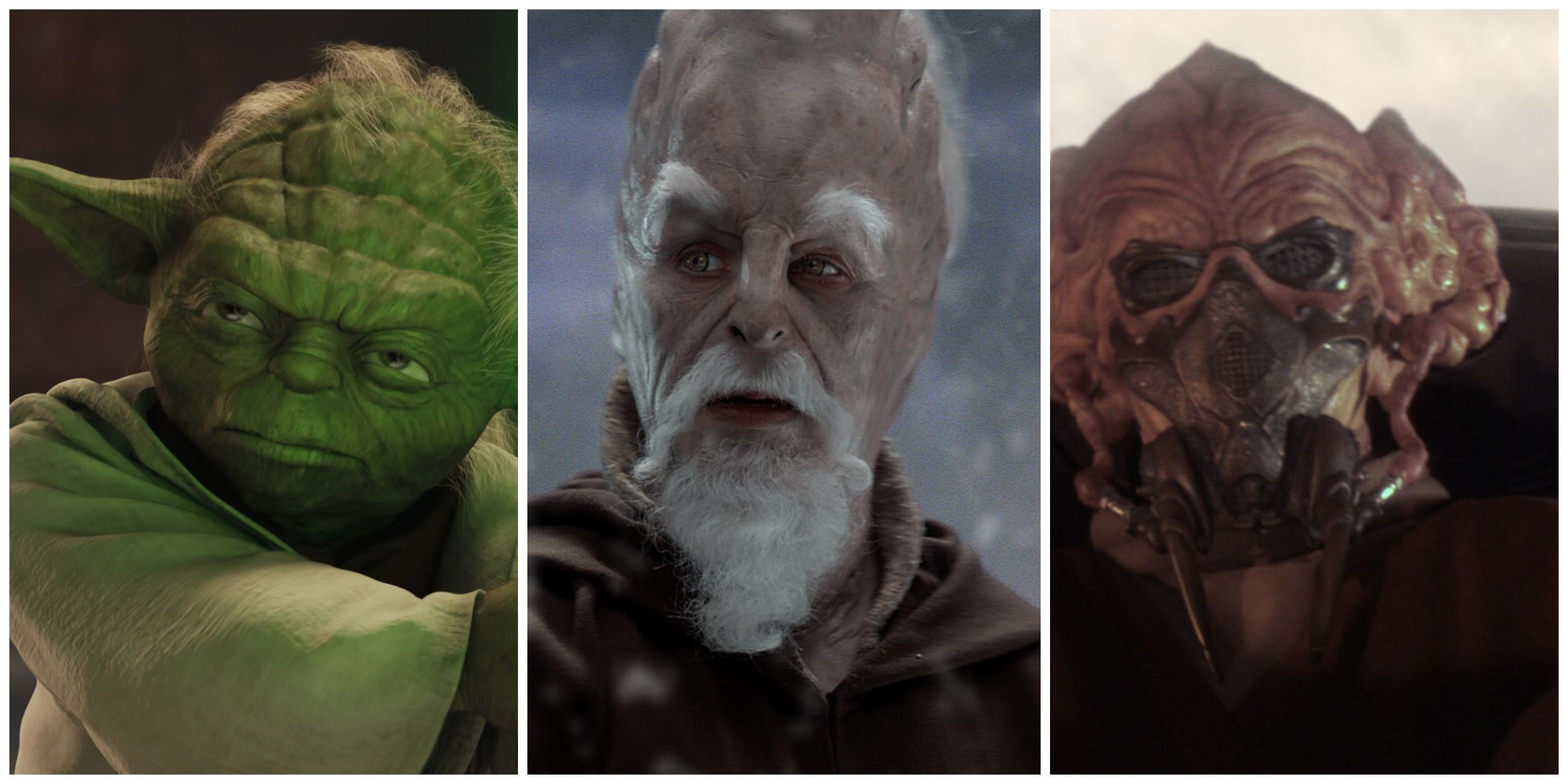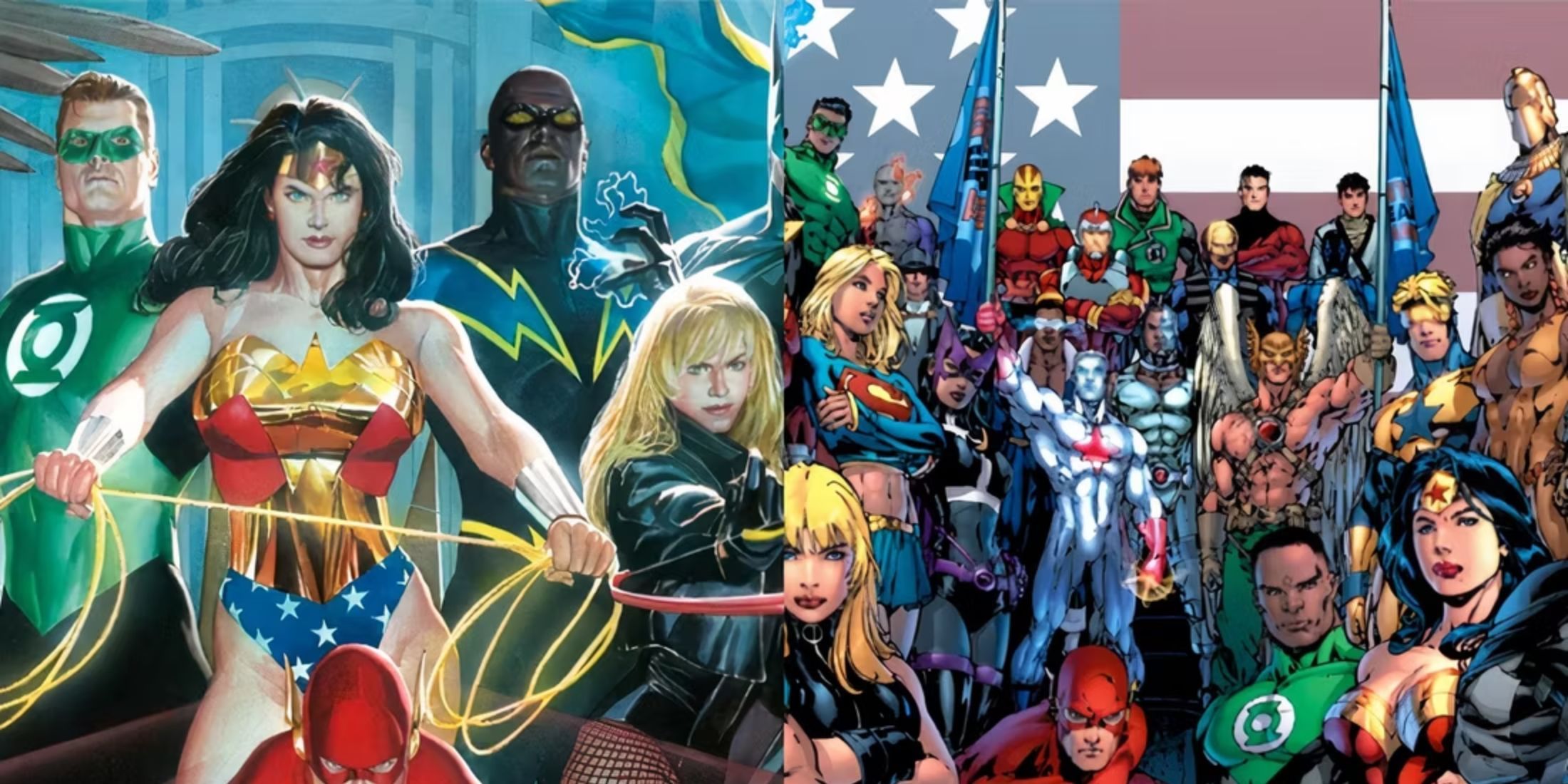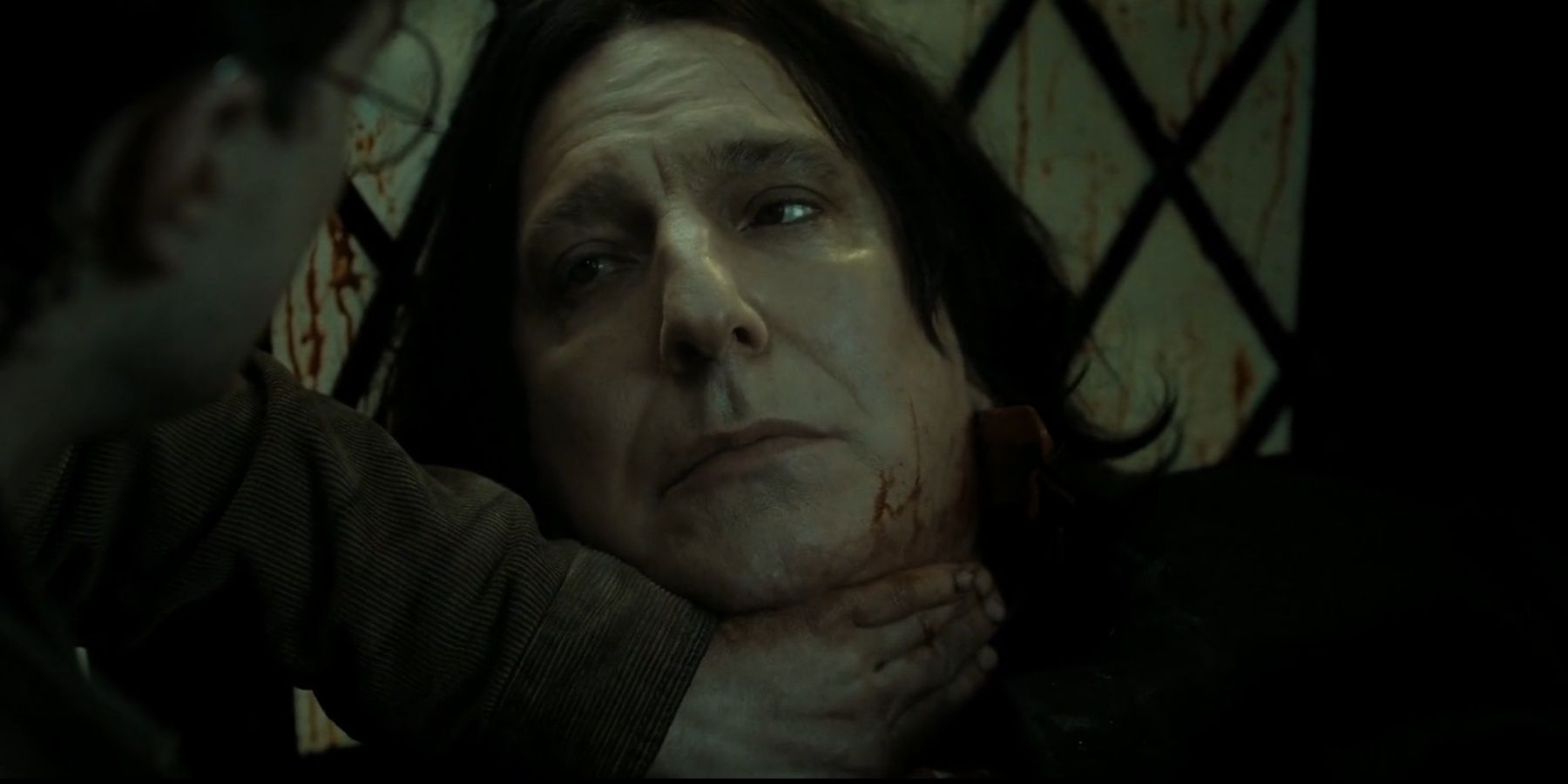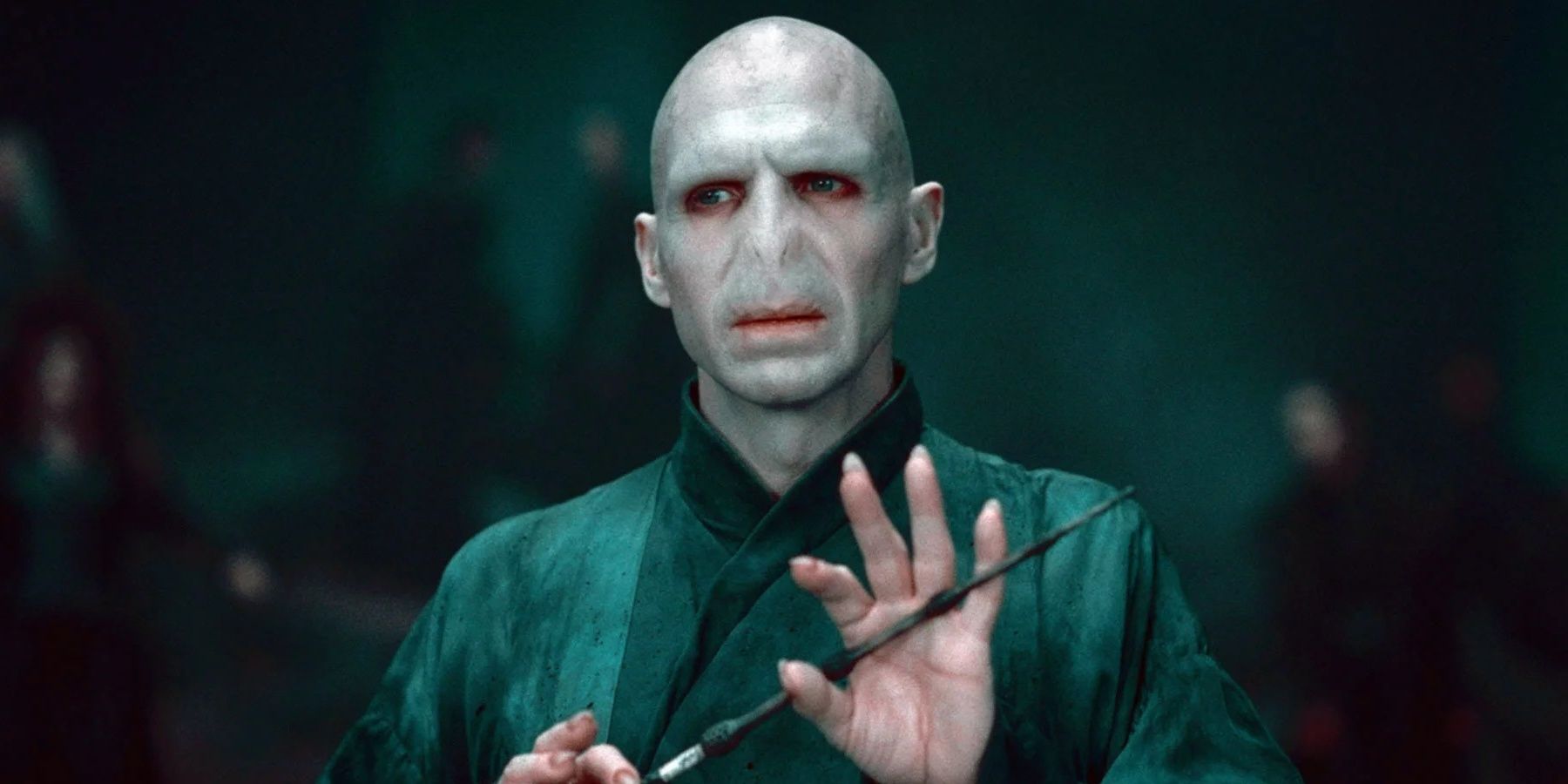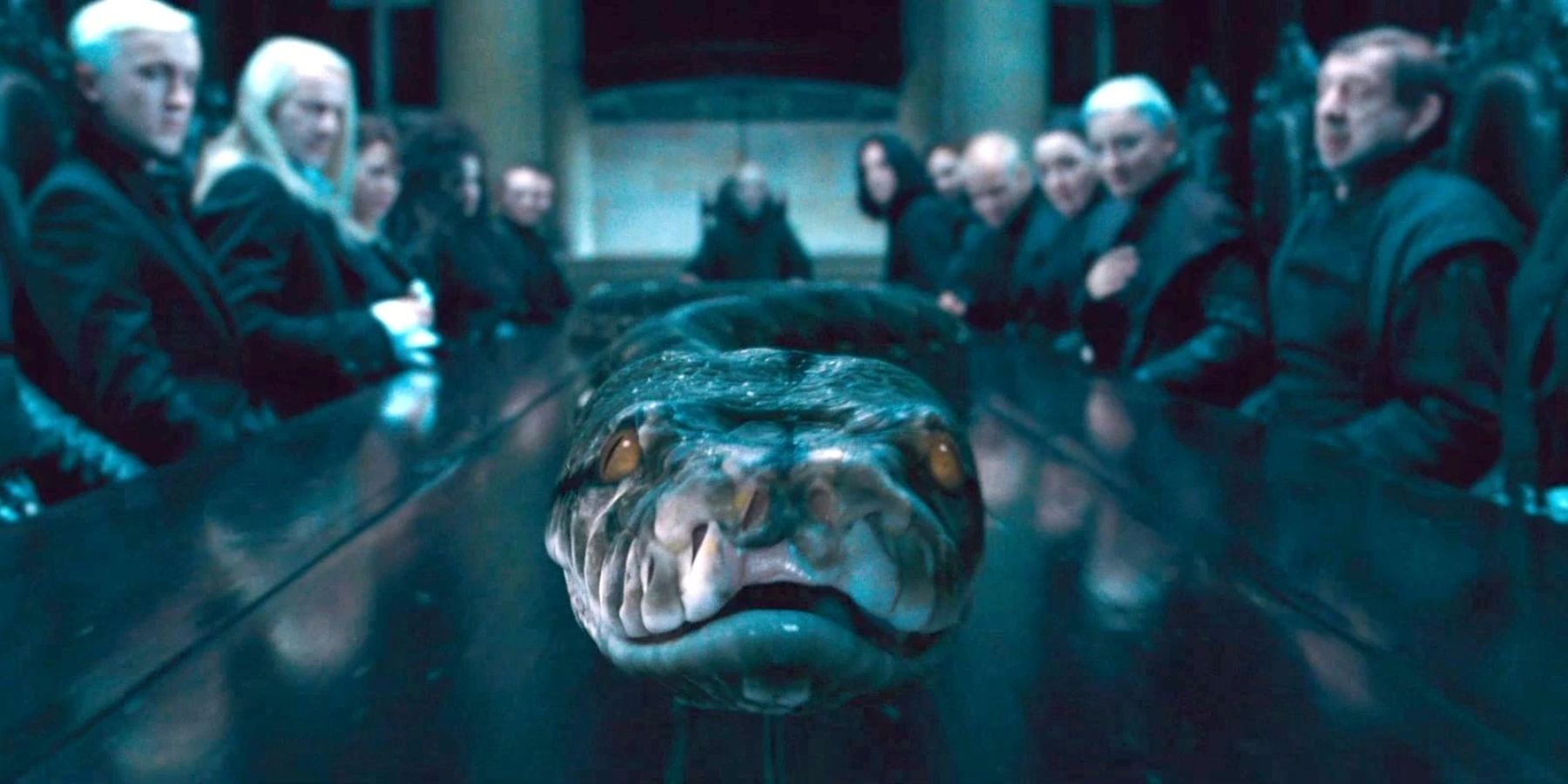Highlights
- Snape's death is one of the most tragic moments in the Harry Potter franchise, and it stands out because of how it differs from other character deaths.
- Voldemort chose to kill Snape by ordering his loyal snake, Nagini, to attack him instead of using one of the Unforgivable Curses.
- Voldemort's decision to use Nagini can be explained by his misconceptions about the Elder Wand and his desire to obtain it, but some fans have suggested that it was also because he subconsciously wanted to keep Snape alive.
The death of Severus Snape is one of the most tragic parts of the entire Harry Potter franchise. As fans will remember, Snape was mercilessly killed by Lord Voldemort in Harry Potter and the Deathly Hallows: Part 2. At the time of Snape’s death, Voldemort believed that the Potions Professor was a loyal Death Eater, making his death incredibly shocking. However, Snape’s murder is particularly memorable because of how it differs from the deaths of other Harry Potter characters.
As expected in the Harry Potter universe, many characters were killed by the use of magical spells. In contrast, Voldemort actively chose not to use one of the Unforgivable Curses against Snape, and instead killed him by ordering Nagini to attack the Potions Professor. As fans will recall, Nagini was Lord Voldemort’s loyal snake, who was later revealed to be one of the Dark Lord’s Horcruxes, which made Nagini both devoted to the Dark Lord and deadly. In the build-up to Snape’s death, Voldemort used his wand to cut the throat of the Potions Professor before uttering the fateful order: “Nagini, kill”. The snake then repeatedly attacks Snape, resulting in a bloody and violent death. Snape’s prolonged and painful death has led to an abundance of questions from fans, particularly relating to Voldemort’s reluctance to use the memorable killing curse, Avada Kedavra.
Why Did Voldemort Kill Snape?
In one of the most memorable scenes in the franchise, Snape tragically kills Dumbledore in Harry Potter and the Half-Blood Prince. Whilst it’s later revealed that this was a pre-agreed arrangement between the pair, it is still one of the most shocking moments in the entire series. The death of Dumbledore set off a series of tragic events, which ultimately culminated in Snape’s murder.
Following Dumbledore’s death, Voldemort believed that Snape was now in possession of the Elder Wand. As Harry Potter fans may recall, the Elder Wand forms part of the Deathly Hallows and is the most powerful wand to ever exist. Because of this, Voldemort was desperate to obtain this magical object, believing that it would make him invincible. Traditionally, the Elder Wand could not be used to inflict harm against its master. In accordance with Voldemort’s interpretation, the Elder Wand’s previous master had to be killed in order to obtain the Wand’s loyalty, however this is not the case.
Rather than killing the Elder Wand’s former owner, one was only required to disarm its master. In accordance with this tradition, the Elder Wand’s true owner was Draco Malfoy because he was the one who disarmed Dumbledore shortly before the Headmaster’s death at the Astronomy Tower. However, this rule was unbeknownst to Voldemort, resulting in him believing that Snape was the owner of the Elder Wand. Snape attempted to argue that the Elder Wand was loyal to Voldemort, but the Dark Lord refused to believe him. This is what motivated Voldemort to kill Snape, believing that Snape’s death would make him the new owner of the Elder Wand. Whilst Voldemort’s motivations for killing Snape are known, it’s still unclear why the Dark Lord chose Nagini to kill Snape, rather than using the traditional killing curse, Avada Kedavra.
Why Did Voldemort Use Nagini To Kill Snape?
At the time of Snape’s death, his status as a double agent was unknown to Voldemort. In Voldemort’s perspective, Snape was a loyal and trusted Death Eater. Because of this, it’s difficult to understand why Voldemort would choose to kill his dedicated follower in such a painful and merciless way. However, Voldemort’s decision to kill Snape with Nagini can be explained by the Dark Lord’s misconceptions about the Elder Wand:
The Elder Wand cannot serve me properly because I am not its true master. The Elder Wand belongs to the wizard who killed its last owner. You killed Dumbledore, Severus. While you live, the Elder Wand cannot truly be mine. You've been a good and faithful servant Severus, but only I can live forever.
According to Voldemort's false beliefs, Snape was the master of the Elder Wand. However, Voldemort correctly assumed that the Elder Wand could not be used to harm its owner. Because of this, the Dark Lord believed that the killing spell could not be inflicted against Snape, resulting in him having to find another way to kill the Potions Professor.
Nagini seemed like the perfect resolution to the Dark Lord’s predicament. The vicious creature was under Voldemort’s control, meaning that it wouldn’t be able to disobey the order to kill Snape. In comparison to the risky killing curse, Nagini was a much safer option. In Voldemort’s perspective, it was crucial to obtain the Elder Wand, meaning that no risks could be taken.
Some Harry Potter fans have suggested an interesting alternative behind Voldemort’s decision to use Nagini to kill Snape. As suggested by Screen Rant, Voldemort used Nagini to kill Snape because of the Dark Lord’s subconscious desire to keep his ‘devoted follower’ alive. The killing curse rarely backfires, meaning that if Voldemort had used Avada Kedavra against Snape, then the Potions Professor’s death would be guaranteed. However, by using Nagini instead of the killing curse, Snape had a slight chance of survival. In Harry Potter and the Order of the Phoenix, Arthur Weasley was attacked by Nagini. Although Arthur suffered from grievous injuries, he survived the attack. Because of this past event, it’s proven that Nagini’s attack wasn’t guaranteed to kill Snape.
As shown via Voldemort’s spiteful relationship with Peter Pettigrew, the Dark Lord detested the majority of his followers. In contrast, Voldemort genuinely trusted Snape and slightly respected the Potions Professor to an extent. It is difficult to comprehend why Voldemort would want to lose such a ‘devoted’ follower, making this a plausible theory behind the Dark Lord’s use of Nagini.
However, the Dark Lord’s desire to obtain the Elder Wand outweighs this theory. To Voldemort, Snape was a replaceable follower. Nobody could interfere with Voldemort’s mission to obtain the Elder Wand, resulting in the Dark Lord’s malicious murder of Snape. This is reiterated via Voldemort’s final words to Snape, in which he told him that: “You have been a good and faithful servant, Severus, but only I can live forever”. As fans are now aware, at the time of Snape’s murder, Draco Malfoy was actually the true master of the Elder Wand, making Snape’s death worthless.

Harry Potter
When Harry Potter learns that he is a wizard, he enters a world beyond belief. Aside from continuing his studies at Hogwarts with best friends Ron Weasley and Hermione Granger, Harry must also face Voldemort and his dark wizarding forces. The Harry Potter franchise is a worldwide phenomenon, spanning seven books, eight movies, three spinoff movies, a stage play, and numerous video games.
- Created by
- J.K. Rowling
- Cast
- Daniel Radcliffe , Emma Watson , Rupert Grint , Alan Rickman , Michael Gambon , Ralph Fiennes , Maggie Smith , Robbie Coltrane
- Where to watch
- HBO Max


